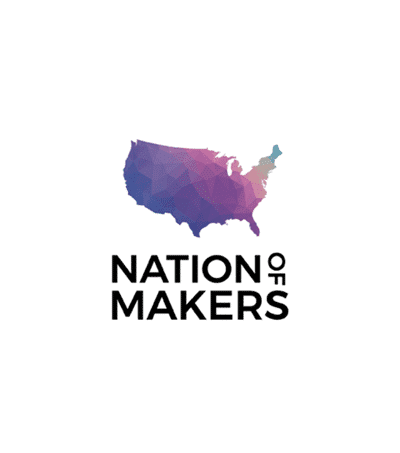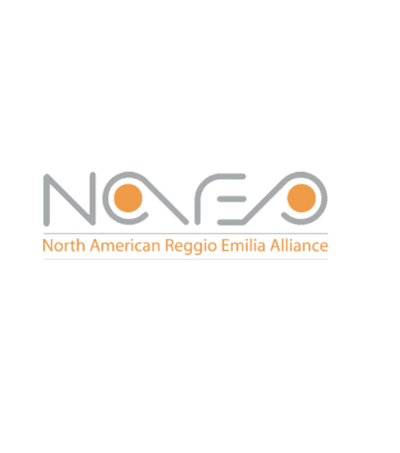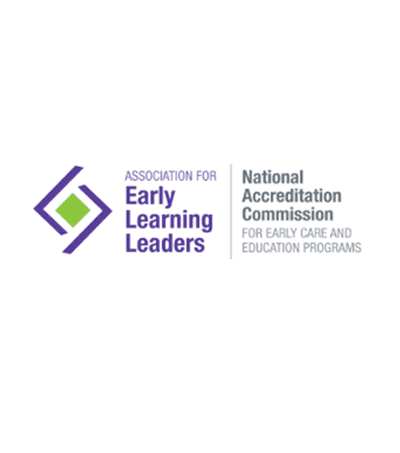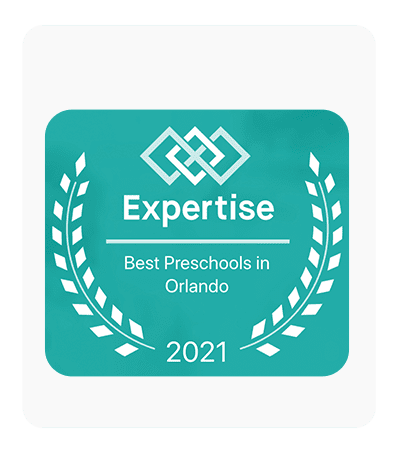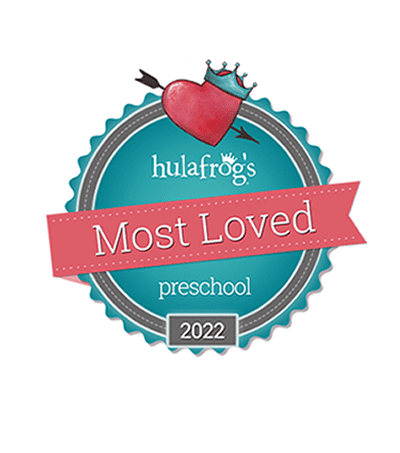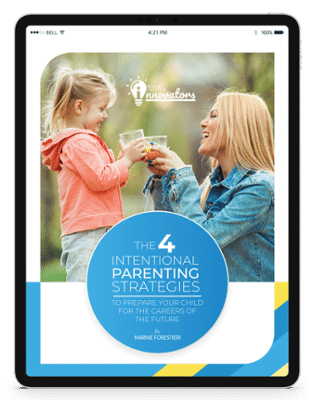Episode Transcript
Today we have the opportunity to interview and have as a guest a true expert in the early childhood field. Dr. Nana Robertson is the Program Manager for the Early Childhood Education Department at Seminole State College of Florida. She has a master’s, the green preschool education, and a doctorate in higher educational leadership with a concentration in early childhood education. Dr. Robinson from Seminole State Community College has been in the field for 44 years, so she has so much to share in the childcare industry that she worked for 18 years from a kindergarten teacher to divisional director of 50 centers. So she has taught at a college level for over 26 years. She also serves as a NACY peer reviewer for college accreditations, and she is our guest today in the childcare S expert podcast.

Marnie Forestieri Well, it’s such an honor to host a show with such an expert where you have so much wisdom to share with us and kind of walk us through the different phases or evolution of our industry. All right. Tell us a little bit about yourself first.
Dr. Nana Robertson: Well, I will that part of it very short. Okay. I started in childcare when I was 22 years old, right out of college. How was the kindergarten teacher in a childcare center? And I became the director there. I was so young. The regional director that hired me put me on probation and after 18 years she remembered she needed to take me off of probation. You’re right. 18 years on, I guess probation. I grew with the company. Aye. Mmm. I became a director for a couple of years when I was a regional director. They provide centers and then I became a divisional director that had centers and three different, right?
I loved my job and working with childcare. I needed to quit traveling because my children were getting into the elementary age grade and I was going into middle school. So that’s when I became an adjunct for the college and I, I became full-time faculty there, got my doctorate working there and I have enjoyed it. Teaching teachers of young children. A couple of things happened to me, it happened in the field, well I was the director then changed to childcare. Remember if when you’re been in it 44 years, there are a lot of things that can happen during that period. But centers started transporting school-aged children.
When I first started in childcare, it was only for children three years. Yup. And parents I would call you and ask how much it costs the babies. Yeah. So then we started taking before and after school care of children and providing services for them. Summer, which was the change. And another change was, it was the first one. Yep. We’re allowed to take infants and toddlers. So those two changes have changed. The childcare industry as we just assumed. Others always seem that way now. Not always.
Marnie Forestieri: That’s incredible. Wow. You can pretty much walk us through the history and stages of recognizing the importance of the early years, so when do you think that shift started to happen? When did people start a not or the market or the government? When do you think that that started to change?
Dr. Nana Robertson: I think it started to change when we started to see a difference without going deep into economic factors. It used to, be some middle class that when a couple got married it would automatically shoot and keep the middle class. That started to not happen. Mmm. Interest rates became high. It costs more to buy a house and people, mothers especially were having to go to work that had never thought about working with him. They were going to put your children in a preschool until noon.
Once that happened, okay. Crunch came economically. Then we had to start looking at children after school that were elementary age, younger children into the school. We started taking two-year-olds, 18 months, then 12 months, and then we eventually worked down to infant toddlers. When that full-time care became so predominant, it became more of a thinner-driven idea that okay, educate children and NACY became predominant educating educators on wheat.
This is a, this is a prime time to educate children. Brain development is telling us that and now we know that the right self-regulation skills are developed in children preschool age Dean 75% then have a child. Mmm. Self-confidence is developed before self-esteem is developed before five years of age. We have tremendous stability with young children in teaching them. She developed their true personality and their characteristics. Okay. The most important thing childcare teachers can teach children the most important. It’s the how to be a friend, how to be a friend affects a child through the rest of his life. [inaudible] thanks [inaudible] stay in one marriage to be a good citizen, to stay out of incarceration, to accept the fact he has to pay taxes. All of that goes into the stability of learning increased school of how to be a friend.
Marnie Forestieri That’s fascinating. So tell us about the evolution of the educational offering. The when youth from when you started, how have you seen centers shift to words and more educational content? When did you start seeing that?
Dr. Nana Robertson: Well that’s kind of funny. You mentioned that, when I started in childcare, we had a real challenge of trying to prove to parents [inaudible] did something through the day other than the baby. Cause remember I told you that when they would start the conversation, when they called you on the phone, they asked you how much you charge to babysit, which we all took offense to.
So we would put out what we call now printed sheets that we used to call ditto sheets because we would run them off, but we would put off these preprinted sheets every day. These would go home to the parents so that we could have a kind of proof of the purchase of the theme. Your child is doing something and they were so primitive of what we were trying to do with the child. Mmm. We were trying to teach. Yeah. Their phonetic sounds, but the only place that we could show parents that we were doing this, led him to color. Okay. The letter that we were trying to teach. Okay.
This has evolved through time. Mmm. More study. Thanks street. Okay. The first banner that Mmm. That was developed in New York, that and Matt and also in Massachusetts that has the, the environment that we carry out today such as shell low shelf for children to have their toys on it. That was a Bank Street idea, a daily schedule posted. What’s a Bank Street idea? So dinner started evolving good ideas and they started publishing again. NACY was the crux of this format and it led to college-educated students in the early childhood field that we could a better way of doing it. Flashcards in pre-printed sheet.
That’s kind of where we have gotten to where we are today. There were a lot of pioneers. Some of them are still around. Lillian Katz can fill a ballroom. Thanks. I’m Grace Mitchell. She passed away several years ago. She was the director there. First large group seller and she used it to travel the United States. I’m on a topic called, there’s got to be a better way. Wow. So much wisdom in the early childhood field. The requirements for teachers in the last year have been a struggle.
Marnie Forestieri Candidates for positions in an industry have a very high turnover rate of this turnover. And what do you think? We’re having so much trouble finding this ideal candidate that would stay in the industry.
Dr. Nana Robertson: Okay. The consequence of having high turnover is that you have low true. Okay. You have children but they become accustomed to what is necessary. Very or attachment. Okay. Trust versus mistrust. Okay. Okay. Erickson calls. Okay. First. Oh, so a person they’ve become attached to, it’s just ripped out from under him. Sometimes teachers don’t even give a notice. I am not coming in today and that’s it. That was always has been a problem. I used to do observations, of students that were already working in this field for their nationals, da. And what else I owned was Mmm.
The more they got trained, the longer their longevity would be in a center because they would develop patients, they would understand that children are going to learn early childhood education to run before they can walk and they’re going to learn to untie their before they can tie their shoes. So their expectation level of children is more appropriate. I think it is crucial to be a successful center in our industry to offer teachers an opportunity for early childhood education training and to provide low ratios in the classroom. The worst thing you can have is an untrained teacher in a high Rochelle ratio room. Mmm. It is a powder keg waiting to happen.
Marnie Forestieri. And then about the second part of the question, so I understand that you beautifully stated that turnover affects the quality of an early childhood program, but how can we retain, besides doing training, what are other things that employers or the industry as a whole could do to retain this highly qualified teachers and, and keep them in the industry?
Dr. Nana Robertson: Well, it’s going to require more money and that is a very difficult thing because I truly understand the labor percentage that is center and it runs more than 50% and it’s very difficult to stay in business when you have one factor. Okay. You’re expensive happening like that. It’s going to be an early childhood education process. Parents are going to have to learn that they’re going to have to pay for quality.
Sometimes I think we have our money placed in a center because we allow so much money for marketing and advertising. Honestly, if we would provide low ratios, the center sell itself because parents would be so pleased if they would tell other parents people have to live. One of the darkest facts I learned when I was a supervisor of preschool, it’s a teacher told me she went to a pawn shop and hot her wedding rings every month to make ends meet before she got paid.
Marnie Forestieri that. Not. So, let’s go and start with the career. How do you know if somebody is made up to be an early childhood educator?
Dr. Nana Robertson: That’s the million-dollar question. Mmm. I would suggest first that if somebody thinks they’re interested in a career in early childhood, they should get their 40 hours online. A state-mandated training. You don’t have to have any, yeah. To get the training, go into a center and try to become an assistant teacher. Even a volunteer. Yes. See if they are NEDA of the grit that it takes to be an early childhood teacher. The physical stamina to be born. If they find that, yes, [inaudible] I love this. I can’t wait to come back the next day and they should get their staff credential and continue into education. Okay. Your best teachers are those who have not only antipathy but a sense of humor and organization.
You understood Sandy and the coordinator of intentionality when they were teaching and you mentioned intentionality in your intro. Intentionality is the core of developmentally appropriate practices. So when we tell a teacher we want a child to have child-directed play, that doesn’t mean that they get to throw up their hands and think, okay, I’ve got a break now for 20 minutes. No, they are to post questions and provide activities and scenarios, to children so that they can be productive. And that’s where the intentionality comes in. A teacher has to learn that they have to be educated. And my biggest concern that we are providing online, Mmm. Three hour workshop with six hour workshop that teachers are taking that they’re getting an abundance of certificate and meeting this, that qualification teacher training, but they’re not being able to continue that into really Mmm true early childhood education.
Marnie Forestieri Absolutely. I understand. So one question, what do you think, we’ve had a couple of guests in the show that have been teachers that started as teachers in the field became directors and then own their centers. I actually share that fish and for the industry of empowering ladies entering the industry as a career track. So actually at some point also aspire to become a childcare entrepreneurs. But what we usually find is that that’s usually a minority. What do you think is the biggest obstacle, the mindset, the switch to the has to change for that teacher to, to switch from being a teacher to two and then or, or director or advancing her career? Well, I know for me personally, going from a kindergarten teacher to a director is the realization.
Everything I did all through the day affected the entire city center, not just one small group of children. And to be able to change my focus from a very small focus onto a classroom and to a wider focus, not only on dinner, so, and the children, that’s the outcome for the parents. [inaudible] the importance of hello safety, nutrition, all of those involved. And for an entrepreneur to understand that it takes money, just start a center.
It takes money to keep the center running and how to grow. That’s better. So you’ve got to have a lot of luck and some really good foundational knowledge. You know that you have a small business administration at the college anyone can go to to learn basic back about how to start businesses, how to run businesses, how to create X Excel sheets. Simple thanks. That can be assembling blocks for entrepreneurs who are going in with a little bit Rose colored glasses on.
Dr. Nana Robertson: Absolutely. And having the whole eye birds view of, of the industry, it’s hard, maybe one person and you need some time to learn and all the different stages from going from director understanding the classroom. I’m very few people a can have all that training, but I definitely have seen it in the field and it’s possible and he’s inspiring to see this new generation of childcare entrepreneurs come from the, from the ground up.
I was starting as assistant teachers and moving their way up into this leadership positions in, in the industry. So he’s very encouraging for that and he’s also encouraging to see owners and directors working together. And let’s dive deeper into that because of the industry and how we set up from a legislative standpoint is standpoint. We see owners maybe handling the business side of the business and then the educators handling that and we already know that in the 21st century, organizations are interconnected.
What will you say from your experience will be the best advice to find that middle ground, to kind of speak that same common language where both areas of the business can connect? Well, I think owners should be educated. Yeah. Two, what is developmentally appropriate practices and to communicate with their educated, hopefully educated director. What is our vision for this dinner? Are we a small preschool that is going to [inaudible] nurturing to the child and the child? Just a really simple little half day and the mother comes in and picks them up. Cool. Ledge childcare open 10 12 hours a day.
They shouldn’t do many. Oh, okay. Okay. Hello. Taken the childcare management course at the college where I teach, but it’s very discouraging when they call and say, what is that fastest, easiest way I can get my credential that’s not supporting the early childhood education side of the center and the reason date required owners to take this course. Okay. Directors two is so that they would be privy to the information for early childhood education that the teachers have been learning in the classroom of what needed to be done.
Because we would have teachers come into the classroom at the college and say, okay, my director, what went well? They said, I can’t do this. So you have to be on one page together. And unfortunately this is really the page where it, the owner has to take the lead and informed the director what kind of center does she have a vision for and what is she willing to do, put them together.
Marnie Forestieri Absolutely. And then how do you see the industry and you’ve been through all the stages of this industry. How do you say post covered 19 teen, what are your, what is your vision or what do you think is going to be the outcome or how are the industry’s going to be shaped by this?
Dr. Nana Robertson: Mmm. Four because of, Oh COVID 19 I think it’s going to be full change. I don’t know how all this is going to play at out. I learned about it, the limited capacity that they’re going to allow an areas. How are we going to keep early childhood education from grouping together? I mean they, they kind of cling to each other in activities. Mmm. The use of mask.
The importance of washing hands. The limiting of adults in the classroom. Okay. I can, I can see us in hand-washing before they go into their area in the morning. Mmm. Some centers have installed long before this. I’m hand-washing sinks in their lobbies so that it’s common practice. The parent and the child wash their hands before they go into any other early childhood education classroom. You may see more of that. Okay. I don’t know how centers are going to be able to open until they are sure that they can have the cleaning supplies, the Lysol, the mask, so forth, that they need function on a daily basis. And then I don’t know how you’re not going to be able to open because parents can’t go back to work until they can set their children back centers.
Marnie Forestieri Yeah. Well a lot too. You know when you have a one to 20 ratio with DCF or four year olds, you know some things are going to have to change.Yeah, I bet. I totally think so too. So the last question, what message can you give to early childhood educators currently in the field?
Dr. Nana Robertson: Ooh, that’s okay. That’s an open question. Yeah. Pursue early childhood education. I’m not sure saying that just because I’m an educator saying it because I have 44 years and I know a teacher gets, yeah. Out of their day. They get more pleasure. Feel like they’ve accomplished something. If they are educated, yes they can. Mmm. Look out of the box. See different ways to doing. Yeah. A moment too. Appreciate the sheer pleasure as being with children [inaudible] and the joy that early childhood education can bring to you. I’ve always said that. What other jobs can you sit floor and play with playdough and color and get paid for it. Enjoy that. I enjoy that part. Understood.
And the importance of why I understand that basic principles that we need to be sharing with children. Mmm. To get through the day and to realize that we have a tremendous important role in these children’s lives. Nothing. So someone can go in with that since they came here and sound empathy. Mmm. And they truly love early childhood education. I see. Thank you. Okay. They can enjoy their day and that’s what, that’s what directors and supervisors have got to look for and their teachers. Are they enjoying your day?
Well, thank you so much for your time. It ha it has been an amazing pleasure just to spend this time with you. Thanks for sharing your wisdom, great advices, and thank you for being a guest of the childcare experts.














